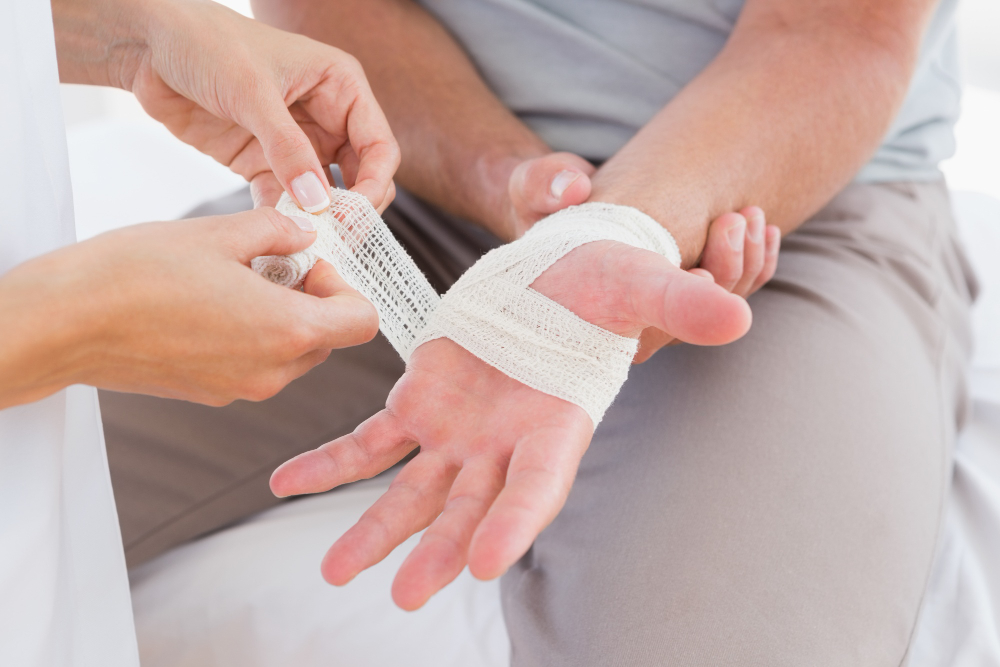
Wounds can happen in the blink of an eye, from a kitchen scald to a simple misstep that scrapes your knee. But determining the severity of a wound can be a tricky business. Oftentimes, what seems like a minor cut can develop complications, leading to infection, and before you know it, you’re dealing with a far more serious issue. Knowing when to seek wound care from a primary care physician is crucial for ensuring proper healing and overall health.
In Philadelphia, PA, the bustling heart of America's history, finding a trustworthy primary care provider isn’t just about convenience—it's about ensuring that you receive the care you need. This blog post will highlight the signs that indicate it’s time to visit a primary care physician for wound care in Philadelphia, PA.
If you're experiencing bleeding that does not stop within a few minutes, particularly if the wound is deep or located near a vein, it's a sign of concern that warrants immediate medical attention. Uncontrolled bleeding can lead to excessive blood loss and may be indicative of an underlying health condition that a primary care physician can diagnose and treat.
The presence of pus or any unusual discharge around a wound can signify an infection. If this occurs, it’s a red flag that your body is fighting a battle that may require additional medical intervention. A primary care physician can assess the severity of the infection and prescribe the appropriate treatment to clear it up.
Red streaks extending from the wound towards the heart can be a sign of lymphangitis, a bacterial infection that requires prompt treatment. Lymphangitis can occur on its own or as a result of an infected wound that goes untreated. A primary care physician can help to prevent the infection from spreading further.
Experiencing numbness around the site of a wound can be an early sign of nerve damage, especially in wounds that are particularly deep or those caused by traumatic injury. Nerve damage can lead to long-term complications, so seeking medical attention as soon as possible is crucial.
If you have a wound in which an object has become embedded, such as glass, a piece of metal, or wood, it is important to have a professional remove the foreign body. Attempting to remove it yourself can cause further damage and lead to complications.
Wounds that are large, deep, or have uneven edges may require medical attention to help properly close and heal. A primary care physician can determine the best course of action, which may include stitches, staples, or specialized bandaging techniques.
If you are at a higher risk of wounds not healing properly, such as those with diabetes, peripheral vascular disease, or a weakened immune system, seeking care for even minor cuts is crucial. Primary care physicians can provide specialized care to ensure that wounds heal well and to prevent potential complications.
Experiencing severe or persistent pain around a wound, especially if over-the-counter pain medications are not providing relief, is a sign that something more may be going on. A primary care physician can address the pain and any underlying issues that may be causing it.
Wounds that produce a foul odor may be infected with anaerobic bacteria, which require different treatment than typical infections. While rare, these types of infections can be serious and require prompt medical care.
Fever is one of the body's natural responses to infection. If you have a fever over 100.4°F (38°C) and have an infected wound, it’s time to visit a primary care physician. High fevers can be indicative of a serious infection that may require antibiotic treatment.
When it comes to wound care, your body often gives clear signals when it's time to seek professional help. Don't ignore these signs, as early intervention can prevent minor issues from becoming major health concerns. If you find yourself or a loved one displaying any of these signs in Philadelphia, PA, do not hesitate to contact a primary care physician for assistance. It's better to err on the side of caution and seek care early—your body will thank you for it.
By understanding the potential risks associated with untreated wounds, you’re taking the necessary steps to ensure a healthy and timely recovery. For quality primary care in Philadelphia, PA, reach out to Vital Urgent Care for expert evaluation and treatment. Remember, your ailment today could be your relief tomorrow!